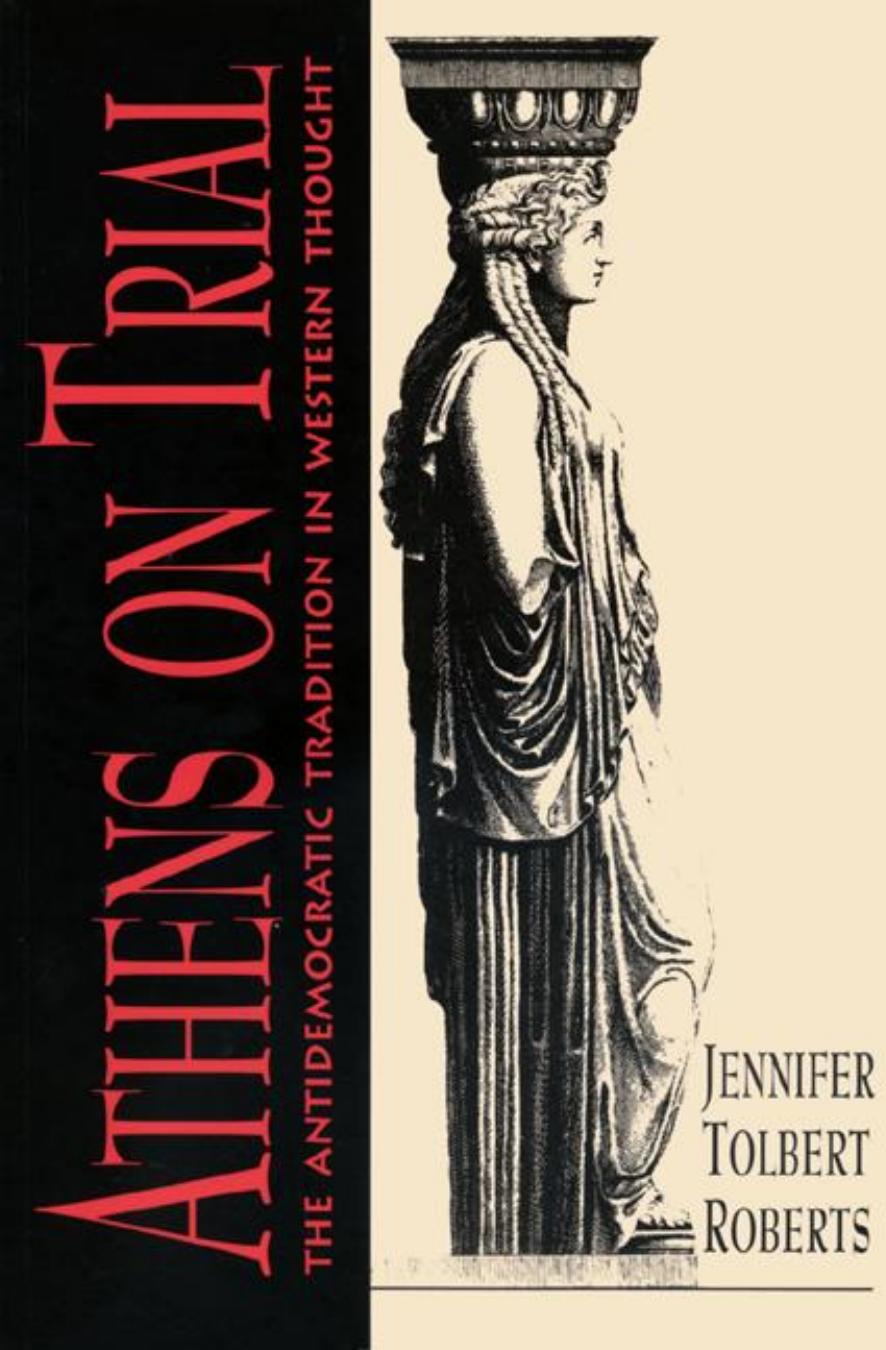Athens on Trial by Roberts Jennifer Tolbert

Author:Roberts, Jennifer Tolbert [Roberts, Jennifer Tolbert]
Language: eng
Format: epub, pdf
ISBN: 9781400821327
Publisher: Princeton UP
Published: 2011-09-15T05:00:00+00:00
THE BRITISH BACKLASH
The revolutions in America and France also inspired monarchists of other nationalities to warn their countrymen against trying the experiment at home. The anxiety was most keenly felt in England, and the reaction was discernible soon after the first shots were fired at Lexington and Concord. In his 1778 edition of Lysias and Isocrates, John Gillies, the Scottish historian to the king, warned dissidents who, ignoring the sad history of Greece, wished to âset on foot a republican confederacyâ to tremble âat the prospect of those calamities, which, should their designs be carried into execution, they must both inflict and suffer.â111 Gilliesâs 1786 History of Ancient Greece also served as a vehicle to convey to readers the evils of nonmonarchic government. Greek history, Gillies announced in his dedicatory epistle to the king, by âdescribing the incurable evils inherent in every form of Republican policy,â evinces the inestimable benefits to liberty from the âlawful dominion of hereditary Kings,â and therefore may with singular propriety be offered to George III as sovereign of the most free nation on earth.
Not surprisingly, Gillies presents the story of Athens as the history of âa wild and capricious democracyâ in which an unbridled mob interacted with a series of worthless demagogues from Ephialtes to Eubulus.112 Gillies is not content to let his readers draw their own conclusions about the evils of democratic government; he states plainly that democracy in general is âa fierce and licentious form of governmentâ with âincurable defectsâ and a âtyrannical spirit.â113 Frequent references to the character flaws of the poor with their âgross appetitesâ make plain the source of Gilliesâs objection to popular sovereignty.114 In ancient times, he explains, as in modern, âthe corrupt taste of the licentious vulgar was ever at variance with the discerning judgment of the wise and virtuous.â115
Developments in America also led Josiah Tucker to crystallize his thinking about government in his 1781 Treatise concerning Civil Government, but the nature of Tuckerâs revulsion for Athens was different from Gilliesâs. Though Tucker resembled Gillies in his desire to rouse in âevery true Friend to Liberty an Abhorrence of the Idea of an Athenian Common-wealth,â he alternately censured Athens for being a flagrant democracy and mocked her as a closet aristocracy.116 An attack on the principles of Locke and their recent application in America, Tuckerâs treatise warns potential republicans in England that âthis very Argument of unalienable Rights, weak and trifling as it is, may nevertheless become a formidable Weapon, in the Hands of desperate Catalinarian Men, for establishing a real and cruel Tyranny of their own (according to the Example which the American Rebels have already set) instead of that harmless, imaginary Tyranny, of which they so bitterly complain at present.â117 Though Tucker censures all forms of unmixed governmentâabsolute monarchy, hereditary aristocracy, and democracyâhe is particularly concerned to caution his readers about government by the âCaprice and Humour of the giddy Populace.â118 Tucker makes clear that it was experience rather than scholarship that led him to reject democracy.
Download
This site does not store any files on its server. We only index and link to content provided by other sites. Please contact the content providers to delete copyright contents if any and email us, we'll remove relevant links or contents immediately.
The remains of the day by Kazuo Ishiguro(8946)
Tools of Titans by Timothy Ferriss(8346)
Giovanni's Room by James Baldwin(7301)
The Black Swan by Nassim Nicholas Taleb(7086)
Inner Engineering: A Yogi's Guide to Joy by Sadhguru(6776)
The Way of Zen by Alan W. Watts(6575)
Asking the Right Questions: A Guide to Critical Thinking by M. Neil Browne & Stuart M. Keeley(5740)
The Power of Now: A Guide to Spiritual Enlightenment by Eckhart Tolle(5723)
The Six Wives Of Henry VIII (WOMEN IN HISTORY) by Fraser Antonia(5484)
Astrophysics for People in a Hurry by Neil DeGrasse Tyson(5169)
Housekeeping by Marilynne Robinson(4420)
12 Rules for Life by Jordan B. Peterson(4292)
Double Down (Diary of a Wimpy Kid Book 11) by Jeff Kinney(4252)
The Ethical Slut by Janet W. Hardy(4232)
Skin in the Game by Nassim Nicholas Taleb(4223)
Ikigai by Héctor García & Francesc Miralles(4219)
The Art of Happiness by The Dalai Lama(4115)
Skin in the Game: Hidden Asymmetries in Daily Life by Nassim Nicholas Taleb(3973)
Walking by Henry David Thoreau(3938)
